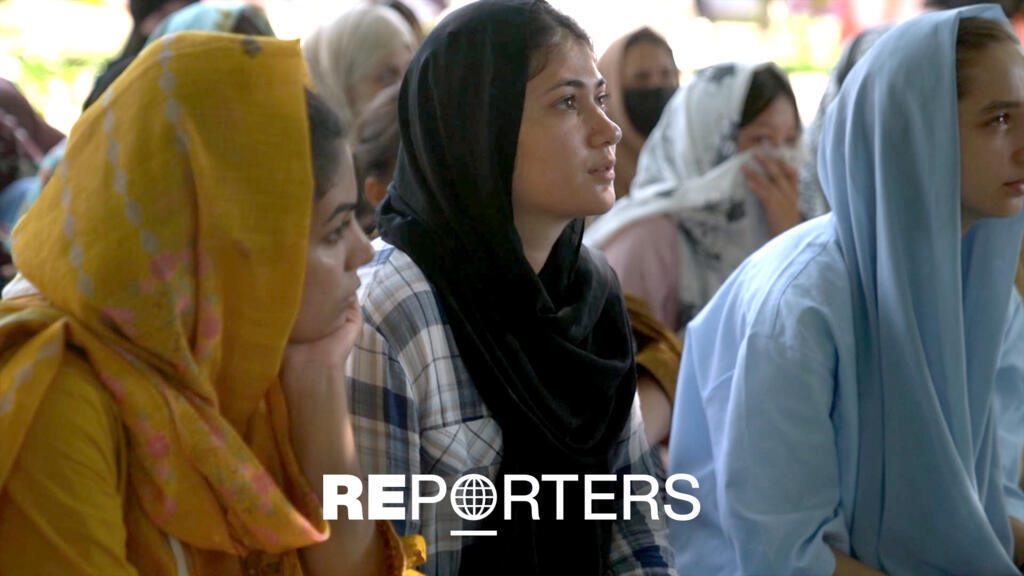Politics
Afghan Refugees Face Tough Choices Amid Pakistan’s Crackdown

Pakistani authorities have intensified their crackdown on Afghan refugees in response to a surge in attacks attributed to the Tehrik-e-Taliban Pakistan (TTP). The TTP is believed to be operating from bases in Afghanistan, where they allegedly plan attacks targeting security forces. As violence escalates, relations between Kabul and Islamabad have deteriorated sharply, culminating in violent clashes along the border. A ceasefire was agreed upon on October 19, but the situation for Afghan refugees remains precarious.
Following the ceasefire, Pakistan has implemented stringent measures, which include the evacuation of entire neighborhoods and the closure of refugee camps. In Punjab, the country’s largest province, authorities have established a new system for citizens to report the presence of “illegal immigrants.” These actions are part of Islamabad’s broader strategy to mitigate the perceived terrorist threat and regain control over its border areas. Initially, the crackdown focused on undocumented immigrants and recent arrivals; however, since September 1, 2025, it has also affected refugees registered with the United Nations High Commissioner for Refugees (UNHCR). Many of these individuals have lived in Pakistan for over four decades.
The recent developments have forced Afghan refugees into a dire predicament. They now face an impossible choice: remain in hiding, hunted by authorities, or return to Afghanistan, a country currently under Taliban rule. The Taliban regime has implemented strict policies that bar girls from attending school, limit personal freedoms, and worsen the already dire economic conditions.
This crackdown has raised significant concerns among humanitarian organizations and advocates for refugee rights. Many refugees express fear of returning to Afghanistan, where the environment is hostile and opportunities for a stable life are almost non-existent. The situation is further complicated by the long-standing relationships that these refugees have built within Pakistani communities, where they have sought safety and stability for decades.
As the situation evolves, the international community is called upon to address the plight of Afghan refugees. Human rights organizations stress the need for a more humane approach to refugee management that considers the complexities of the Afghan crisis. The response from Pakistan continues to be characterized by a strong emphasis on national security, leaving many refugees feeling vulnerable and uncertain about their future.
The lives of Afghan refugees in Pakistan hang in the balance as authorities navigate their security concerns while refugees grapple with the reality of their choices. The outcome of this situation will likely have lasting implications for both the refugees and the broader regional stability.
-

 Lifestyle3 months ago
Lifestyle3 months agoHumanism Camp Engages 250 Youths in Summer Fest 2025
-

 Sports3 months ago
Sports3 months agoDe Minaur Triumphs at Washington Open After Thrilling Comeback
-

 Business3 months ago
Business3 months agoKenvue Dismisses CEO Thibaut Mongon as Strategic Review Advances
-

 Sports3 months ago
Sports3 months agoTupou and Daugunu Join First Nations Squad for Lions Clash
-

 Top Stories3 months ago
Top Stories3 months agoColombian Senator Miguel Uribe Shows Signs of Recovery After Attack
-

 World3 months ago
World3 months agoASEAN Gears Up for Historic Joint Meeting of Foreign and Economic Ministers
-

 Business3 months ago
Business3 months agoOil Prices Surge Following New EU Sanctions on Russia
-

 Health3 months ago
Health3 months agoNew Study Challenges Assumptions About Aging and Inflammation
-

 Entertainment3 months ago
Entertainment3 months agoDetaşe-Sabah Violin Ensemble Captivates at Gabala Music Festival
-

 Entertainment3 months ago
Entertainment3 months agoBaku Metro Extends Hours for Justin Timberlake Concert
-

 Business3 months ago
Business3 months agoU.S. House Approves Stablecoin Bill, Sends to Trump for Signature
-

 Top Stories3 months ago
Top Stories3 months agoRethinking Singapore’s F&B Regulations Amid Business Closures









